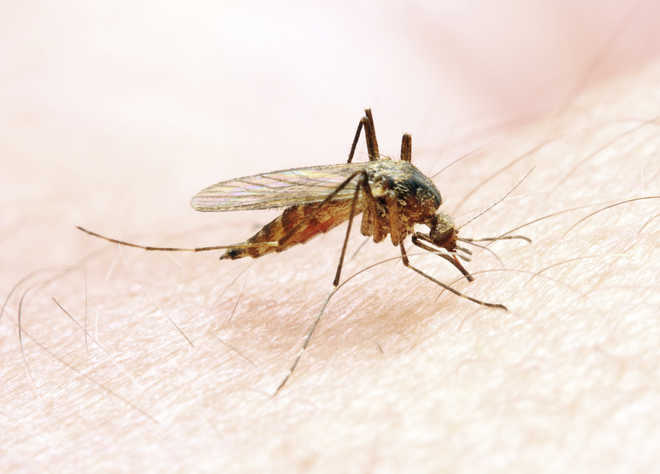
Aditi Tandon
Tribune News Service
New Delhi, February 11
India today vowed to eliminate malaria by the year 2030, the deadline WHO has set for global elimination of the debilitating infectious disease.
Health Minister JP Nadda made the announcement of India deadline today as he launched the National Framework for Malaria Elimination 2016-2030 to eliminate the disease from the country.
Malaria is considered eliminated once the annual parasite incidence (number of cases per 1,000 people) becomes zero at state and district levels.
The framework seeks to address malarial infection in a phased manner by covering low prevalence states in the first phase followed by those where the infection is endemic and the incidence is higher.
States to be covered in the first phase of the plan are those with the API (Annual Parasite Incidence) of one per 1,000 people at the level of the state and every district.
This category includes Haryana, Himachal, Chandigarh, Punjab, Goa, Jammu and Kashmir, Kerala, Manipur, Rajasthan, Sikkim, Uttarakhand, Daman and Diu, Delhi, Lakshadweep, and Puducherry.
The second to be covered will be states with API under one but where some of the districts have a malarial prevalence of more than one case per 1,000 people.
Nagaland, Gujarat, Andhra, Assam, Bihar, Karnataka, Maharashtra, Tamil Nadu, Telangana, UP and West Bengal fall under this category.
The third and the last to be covered will be states with more than one case per 1,000 people at both the state and district levels. These are the states with endemic malaria and include Odisha, Madhya Pradesh, Chhattisgarh, Arunachal Pradesh, Meghalaya, Mizoram, Tripura, Andaman and Nicobar Islands, and Dadra and Nagar Haveli.
Elimination plan will mainly comprise distribution of insecticide treated nets and quick diagnosis through Accredited Social Health Activists who will use specially designed diagnostic kits for early screening of malarial infection.
In India, malaria is a major cause of maternal deaths with pregnant women at high risk. Medically treated mosquito nets have long been promoted as a viable prevention option after patients reported resistance to chloroquine, the anti-malarial drug, which was later withdrawn.
So far, as malarial load in India goes, the WHO reports around 15,000 deaths annually whereas a Lancet study recently had pegged the deaths at two lakh annually.
The government data are not reliable considering majority reporting in the private sector, which goes unrecorded.
India, last year, missed the UN Millennium Development Goal of halving the incidence of malaria by 2015 and reversing the trends.



























